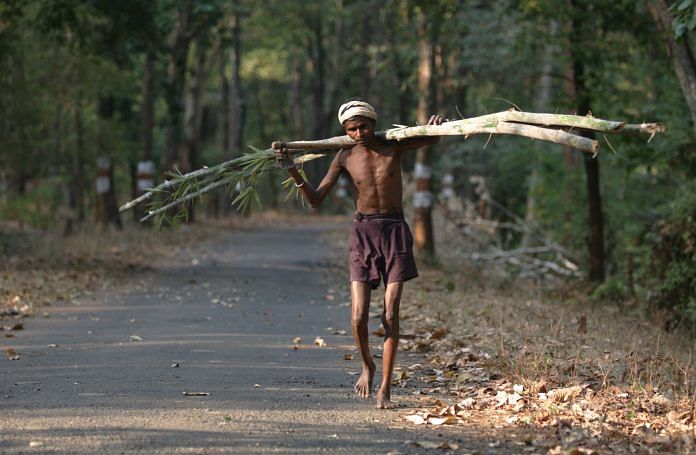An amendment in the law means bamboo has ceased to being a ‘tree’. But reactions to the announcement are mixed.
For 90 years, bamboo was classified as a tree in India. While the change in definition has been welcomed, experts say
“It’s a great step from the government of India to remove the 90-year-old bottleneck. This small step will have an explosive impact on the bamboo sector and for our Mother Earth,” Parameswaran Krishna Iyer, Founder of Bamboopecker Lifestyle crafts Pvt. Ltd, said.
Iyer said that the amendment would stop bribery and the harassment they face while transporting bamboo.
Dr. Syam Viswanath, a senior scientist at Institute of Wood Science & Technology, Bengaluru said the amendment was a welcome move.
“This amendment can help promote agro-forestry with combined efforts like treating bamboo as a horticultural crop through subsidies, bank loan schemes, etc,” Viswanath added.
Why it matters
India is the world’s second largest bamboo producer and has 13.96 million hectares, the largest area, under bamboo cover. About 2 crore people are estimated to be working in industries that use bamboo.
Bamboo is a wild growing woody grass, but was defined as a tree in the Indian Forest Act 1927. The amendment was meant to impose restrictions on the bamboo trade to protect forests, but it also made the cultivation and transportation of bamboo across state lines difficult.
Non-uniform rules and regulations in different states for varying species of bamboo, also resulted in tedious negotiations with the forest and police department officials.
Not everyone’s cheering
In the northeast the amendment is being seen as a half-measure to solve the problem.
“As such the present initiative to declare bamboo as non-timber from non-forest areas will not benefit northeastern states,” Kamesh Salam, Former Member of the Apex Committee of National Bamboo Mission of India, said.
“This colonial order needs to be removed from all areas, both in non-forest and forest, where farmers and communities are engaged in bamboo cultivation as a source of livelihood. Bamboo should be declared as a commodity like tea/rubber/coffee/coconut etc,” Salam said.
Bamboo is highly concentrated in the forests of the northeastern states, constituting 28 per cent of the area, and 66 per cent of the growing stock.
Vikas Khemka, a bamboo entrepreneur from Guwahati, was also skeptical if this amendment would help the northeastern states.
“About 95 per cent of the bamboo produce is from forest areas in the northeastern states” he said.
Khemka said that availability of land will be a major problem since in some states non-tribals cannot own lands in certain areas, This would allow only tribals to be cultivators of bamboo, and unless there are assured profits no one would take up bamboo cultivation.
“Though the forest department has no right to demand royalty or transport permit on finished bamboo products, this continues to happen at every check post. Even after the amendment, how are they going to distinguish bamboo from non-forest and forest areas?” Khemka said.




Perhaps necessary but not sufficient to ensure develooment of bamboo sector. Many states already had bamboo in private areas exempted from transit permits.